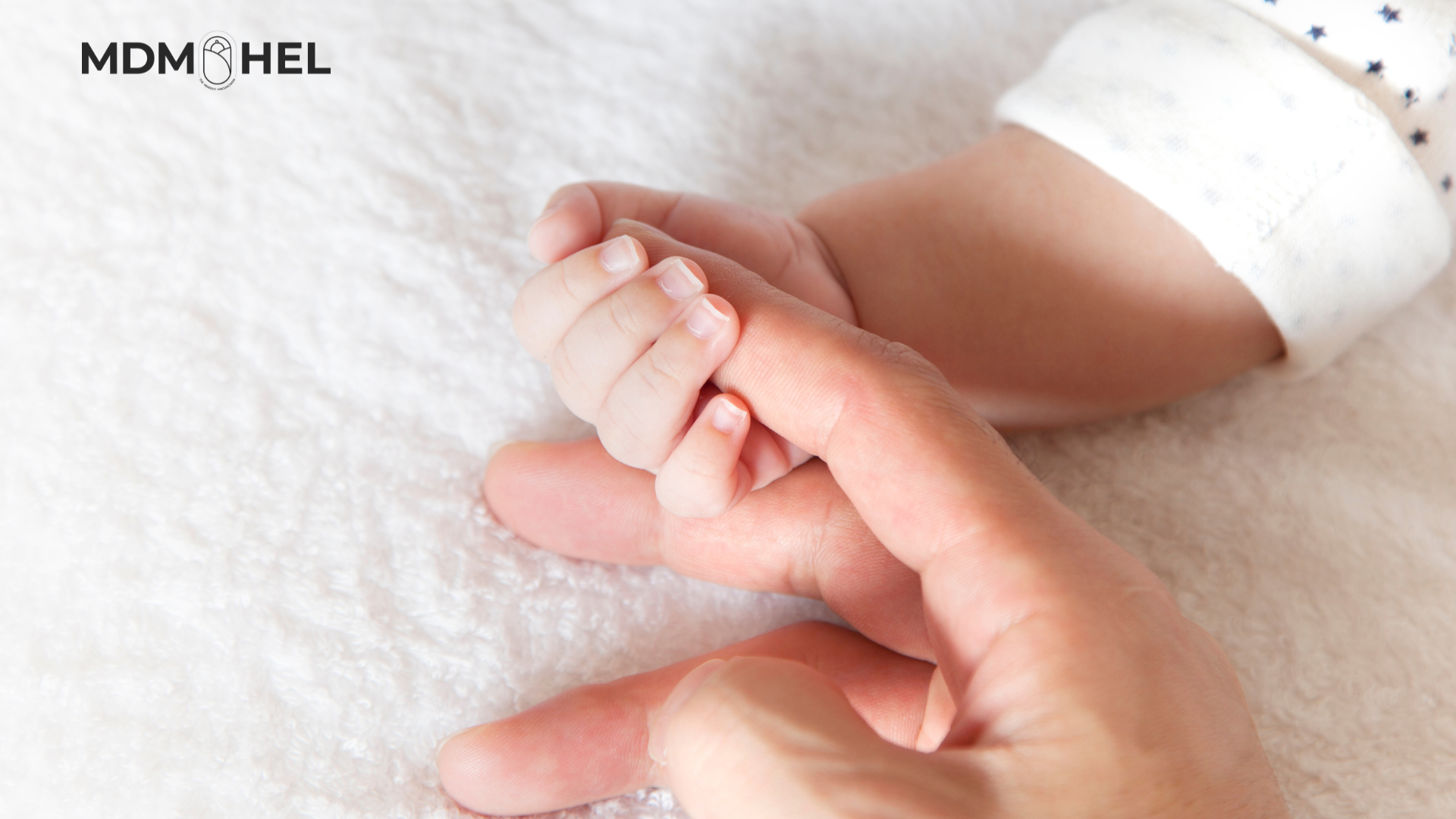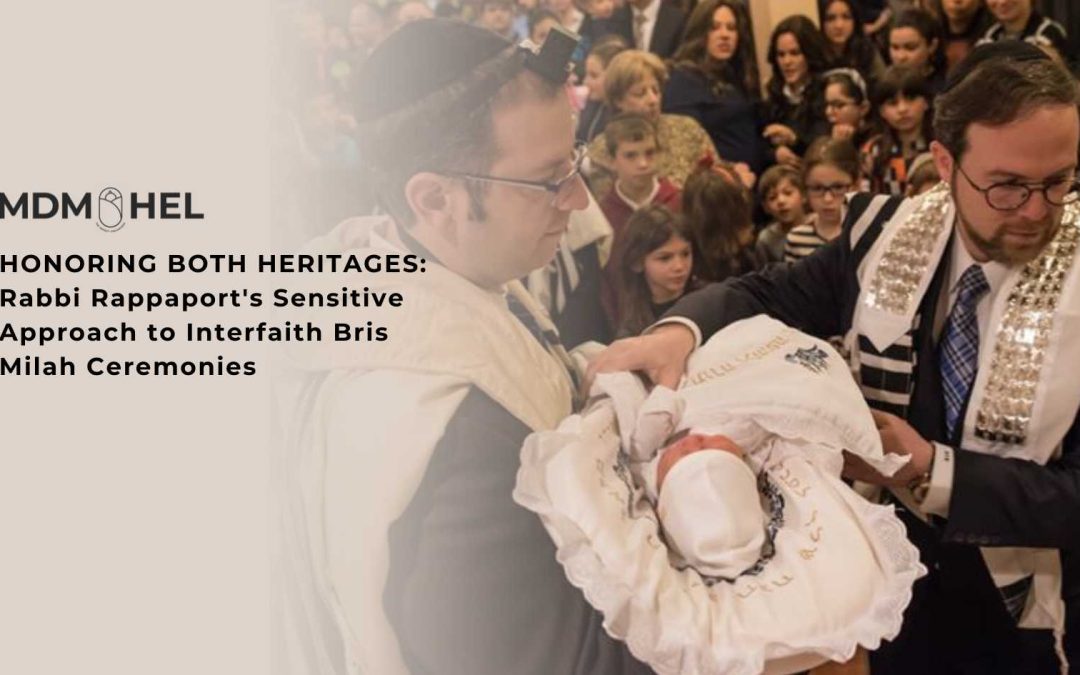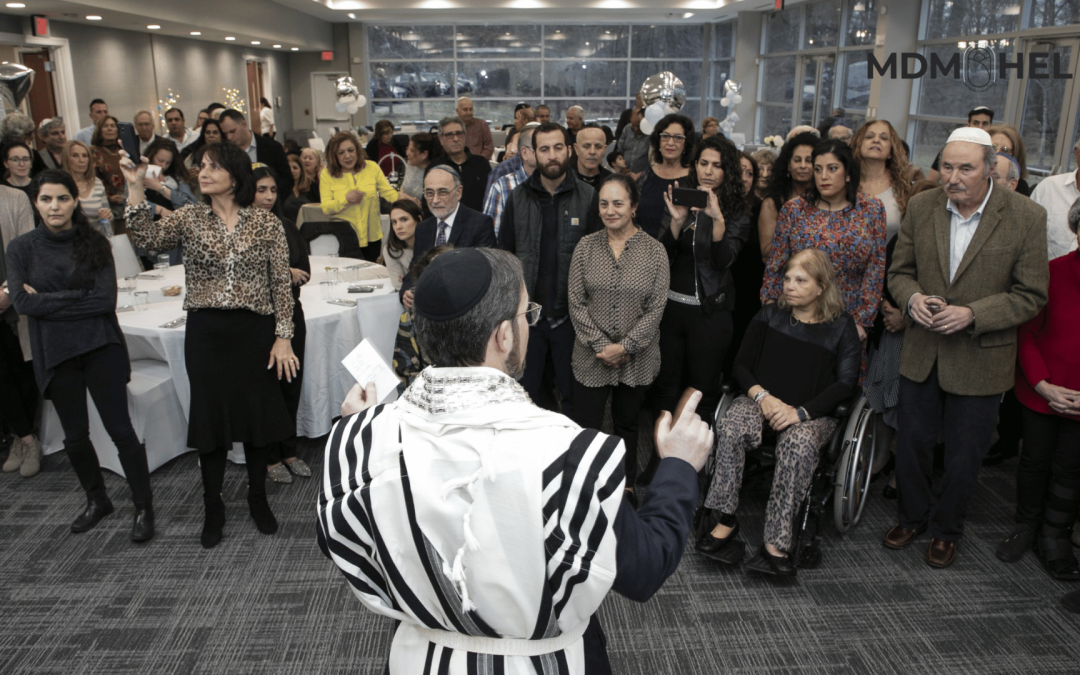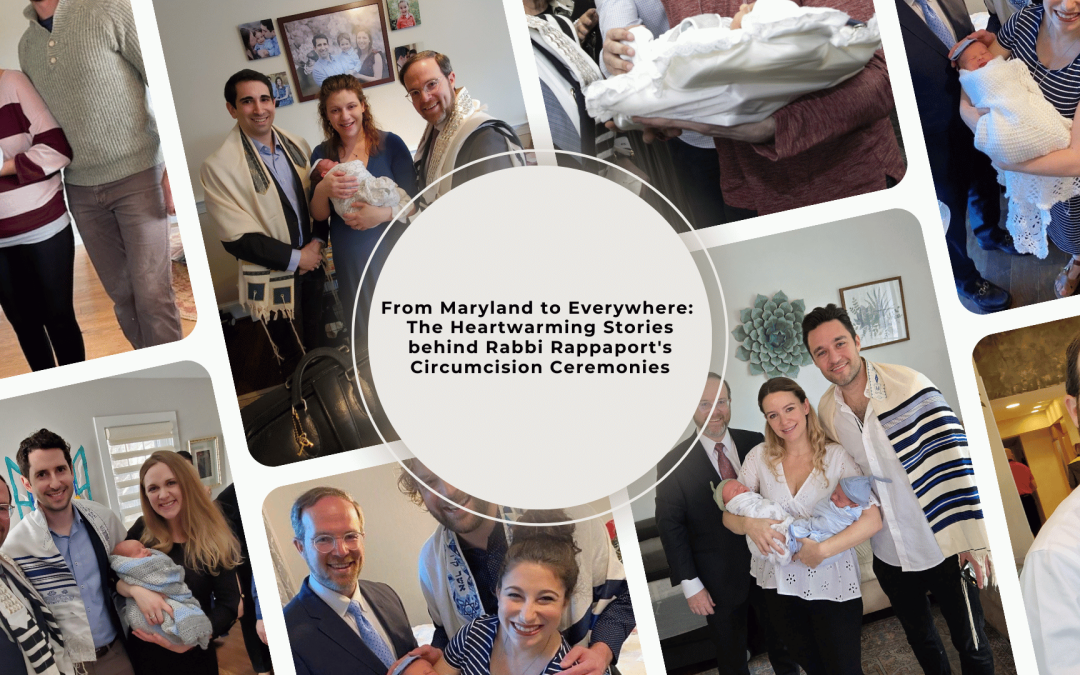Bris Milah, a sacred and time-honored Jewish commandment, is a momentous occasion for families and communities alike. This covenant between us and God is steeped in profound spiritual significance. Central to this ceremony are the key figures whose roles and responsibilities ensure sanctity and smooth execution.
In this article, we’re diving into the essential roles during a Bris Milah, highlighting their significance and unique contributions to upholding this most revered tradition.
The Roles of the Kvatter and Kvatterin
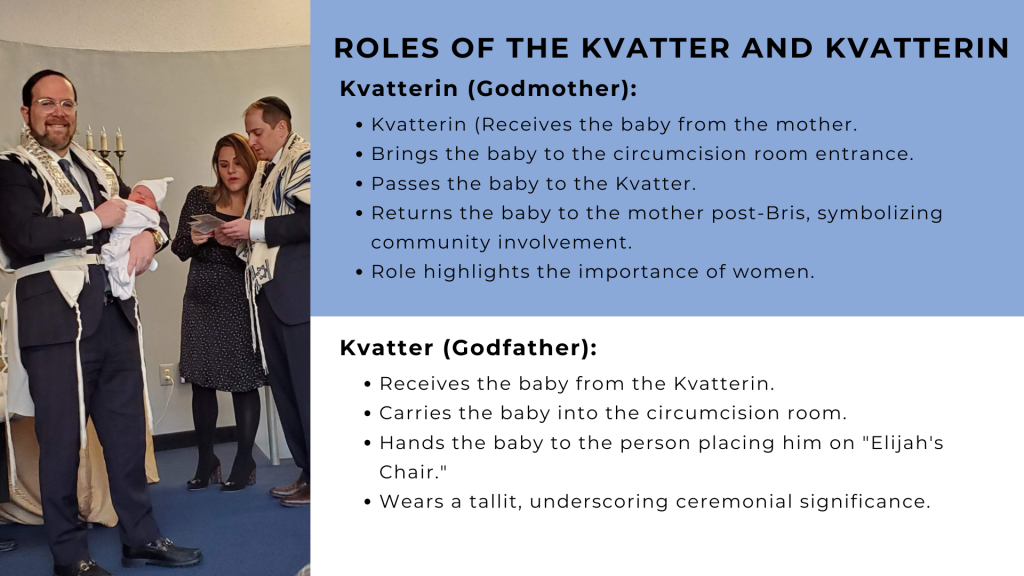
The roles of Kvatter and Kvatterin hold great significance, symbolizing the ceremony’s communal joy and spiritual depth. These roles, often performed by a husband-and-wife team or, in some cases, a father and daughter or mother and son, are integral to the smooth and meaningful execution of the ritual.
The Kvatterin, or godmother, is honored with the responsibility of receiving the baby from his mother and bringing him to the entrance of the circumcision room. She then passes him to her husband, the Kvatter.
After a Bris, the Kvatterin returns the baby to his mother, completing a symbolic journey of care and community involvement. This role is uniquely reserved for women, highlighting their vital presence in the ceremony and the child’s life.
The Kvatter, or godfather, receives the baby from the Kvatterin and carries him into the room where the circumcision takes place. He then hands the baby to the one responsible for placing him on “Elijah’s Chair,” the seat symbolizing the presence of the Prophet Elijah. The Kvatter is adorned in a tallit (prayer shawl), underscoring the ceremonial importance of his role.
What Is the Spiritual and Symbolic Importance of the Chair of Elijah?
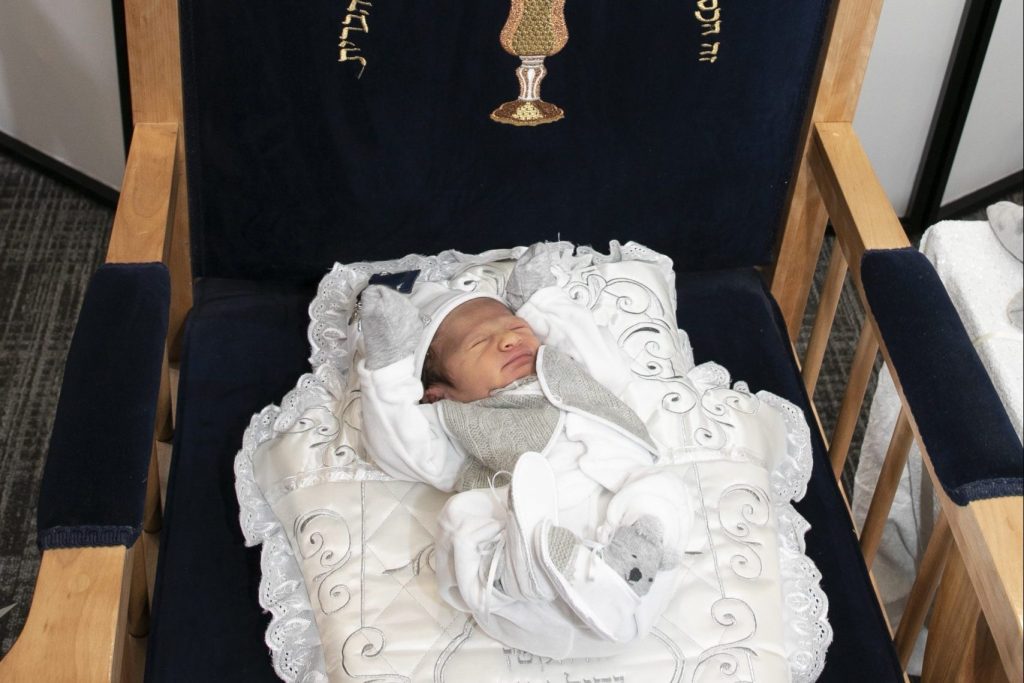
The Chair of Elijah holds profound spiritual and symbolic significance. This special chair, also known as the Throne of Elijah, is reserved for the Prophet Elijah, who is present at every circumcision and bears witness to the covenant between God and the baby.
The person given the “Honor From Elijah’s Chair” plays a crucial role in the ceremony’s progression. They gently lift the baby from Elijah’s Throne and hand him to his father.
The father then hands his baby over to the Sandek, the person holding the baby during the circumcision. This sequence of actions is rich in symbolism, representing a chain of blessings and responsibilities passed from one esteemed participant to another, each step reinforcing the communal and spiritual bonds.
The Honors of Being a Sandek during Bris Milah
The role of the Sandek is considered the highest honor in the Bris Milah ceremony. Entrusted with holding the baby during the circumcision, the Sandek symbolizes the child’s entry into the enduring lineage of Jewish heritage. Their duty is to securely and lovingly hold the baby throughout the circumcision.
This honor is often compared to the sacred act of a kohen offering incense in the Beit HaMikdash, suggesting that the Sandek’s involvement brings blessings of longevity and prosperity. This prestigious role is given to a grandfather or a revered Rabbi, highlighting the value of wisdom and experience.
Choosing a righteous person for this role is essential, as Sandek’s virtues are thought to influence the child’s spiritual path and foster a unique bond between them.
Once the circumcision is complete, the “Honor from Sandek” is given to another distinguished person, who takes the baby from the Sandek’s lap and passes him to the “standing Sandek.” This act signifies the ceremony’s continuation and reinforces the community’s collective involvement and support.
The Sandek Me’umad, or “standing Sandek,” holds the baby during the blessings and naming portion of the Bris ceremony.
The Spiritual Importance of Bris Milah

Bris Milah is a foundational commandment in Jewish tradition. This significant religious duty is a momentous occasion filled with profound meaning for family and friends. It marks the beginning of the newborn’s spiritual journey and sets the stage for future milestones in his life.
Performed in accordance with Jewish law, a Bris Milah is often held in a home, synagogue, or catering hall, tailored to meet the family’s needs and preferences.
A highlight of the ceremony is the bestowal of the baby’s Hebrew name, typically performed with blessings. This act is deeply significant, as it not only gives the child a name but also links him to his Jewish heritage and identity. The name often honors a departed relative, symbolizing a continuation of life and memory.
The ceremony concludes with joyful congratulations of “Mazel Tov!”
What Are the Communal Blessing Practices at the Birkas HaMazon?
Following the Bris Milah, it is customary to gather for a Se’udas Mitzvah, a celebratory meal that honors the mitzvah just performed. During the meal, there is the recitation of the “Birkas HaMazon,” the grace after meals, which includes special prayers unique to this joyous occasion. The individual chosen to lead these blessings is known as the Mezamen.
The Mezamen guides the assembled guests in the recitation of Birkas HaMazon, starting with the invitation to begin the grace after meals. The Mezamen also leads the recitation of the Harachamon prayers—special supplications asking for divine mercy and blessings upon the participants and the newborn child.
In some communities, the Mohel is honored as the Mezamen, recognizing his central role in the ceremony. In other traditions, different participants are selected to recite each Harachamon prayer, sharing the honor among themselves.
2 Inclusive Practices for Jewish and Interfaith Families
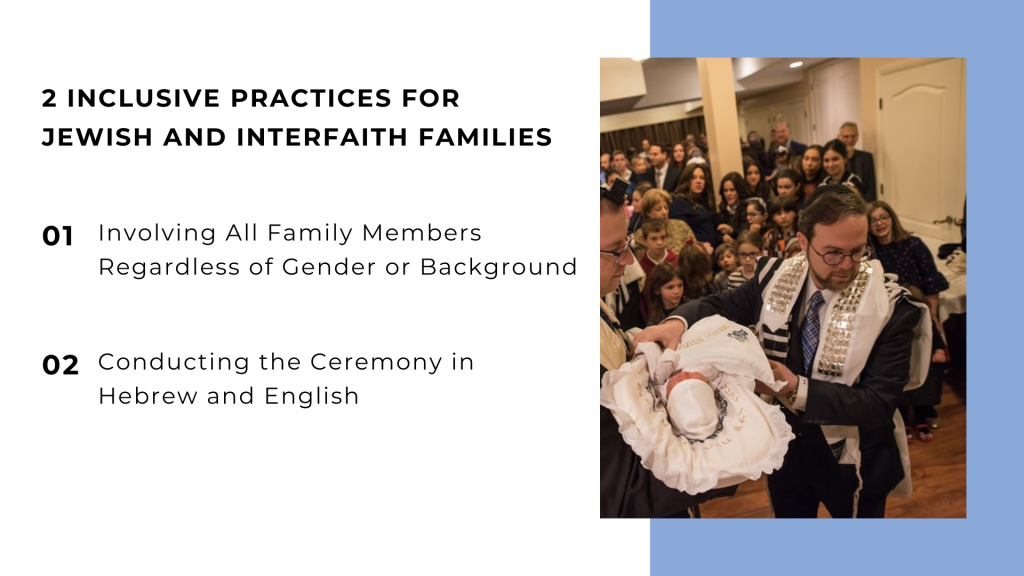
Involving All Family Members Regardless of Gender or Background
One of the beautiful aspects of the Bris Milah ceremony is how it brings together family members from diverse backgrounds, fostering a sense of unity and inclusion.
Rabbi Rappaport’s Bris Milah ceremonies involve family members of all genders and backgrounds. Everyone can be given a meaningful role, whether it’s grandparents, aunts, uncles, siblings, or close family friends. This approach ensures that each person feels valued and connected to the ceremony, reinforcing the bonds of family and community.
Conducting the Ceremony in Hebrew and English
To ensure that everyone present can fully participate and understand the significance of the ceremony, Rabbi Rappaport conducts the Bris Milah in both Hebrew and English. His bilingual approach respects traditional practices while making the event accessible to all attendees, regardless of their familiarity with Hebrew.
By explaining the rituals and prayers in English, everyone can appreciate the depth and beauty of the traditions being observed. This practice enhances the experience for Jewish and interfaith families and helps bridge cultural and linguistic gaps, creating a welcoming atmosphere.
Through these inclusive practices, the Bris Milah ceremony becomes a rich, communal celebration that honors tradition while embracing diversity and unity.
Choose Rabbi Rappaport for the Perfect Bris Milah Experience!

Thousands of grateful families recommend Rabbi Rappaport as the ideal Mohel for the perfect Bris Milah ceremony! Ensure peace of mind and a perfect outcome with a trusted expert. Reach out now and take the first step towards ensuring your child’s circumcision is perfect. We also invite you to read or write a review of your experience with Rabbi Rappaport!
“Such a fabulous experience with Rabbi Rappaport! He did a wonderful job and it truthfully took 30 seconds. If any parent out there is hesitant to get vitamin k injection and circumsision at hospital don’t do it. Rabbi Rappaport knows what he is doing and does not wish to give anything unnecessary like the vitamin k injection to your baby! As a mother I was extremely nervous but he put me at ease and I couldn’t be happier that we used Rabbi Rappaport for our baby boy. Highly recommend.” — Lily Reilly.
Let Rabbi Rappaport do the job if you plan to organize a ritual circumcision for yourself or your child. Contact him anytime on his cell at 443-790-6541. You can also send him an email at rabbi@mdmohel.com or visit his website. He will be happy to support you in making sure you have a perfect experience!

